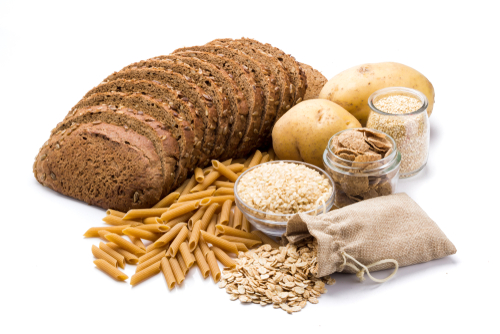With marathon season already underway, there are less than 20 days until over 50,000 runners gather in Greenwich to participate in the iconic London Marathon.
Ending in front of Buckingham Palace on April 27, the gruelling 26.2 mile route requires a careful training plan, whether it’s your first or tenth marathon.
To help you prepare for the day, Kerry Beeson, Nutritional Therapist at Prep Kitchen and Dr Hana Patel, resident sleep expert at Time4Sleep, share advice on how your nutrition and sleep can impact your performance.
- Adapt your diet to fuel, refuel and repair
Kerry, Nutritional Therapist at Prep Kitchen advises that you eat four main food groups when training for a marathon:
Complex carbohydrates

“Complex carbohydrates are best as they are metabolised more slowly than simple sugars, providing sustained energy without causing blood sugar peaks and troughs. Depending on how often and how hard you’re training, aim for around 5-8g of carbs per kg of bodyweight per day.”
Protein
“Protein is essential for muscle growth and repair, and for the production of enzymes which aid nutrient absorption. It also helps to keep you feeling full.”
Healthy fats
“Healthy fats in foods like oily fish, olive oil, and avocado are also great to include as part of a runner’s nutrition arsenal – they’re anti-inflammatory and can provide a sustained source of secondary energy, especially if running long distances.”
Fruits and vegetables
“Fruit and veg provide vitamins and minerals for immune support, efficient metabolism and overall well being. Eat brightly coloured fruits and vegetables like berries or beetroot – these are full of antioxidants which have been shown to improve performance and aerobic capacity.”
- Avoid these three common foods during training
It is equally important that you consider omitting certain foods that could hinder your progress – Kerry advises avoiding the following food groups:
Processed foods
Kerry says “Your diet should be very efficient when training – every meal needs to count. Processed foods are typically full of empty calories, added sugar, and fat,with low amounts of the nutrients your body needs.”
Fatty foods
“Avoid deep-fried or fatty foods – these take a long time to digest and can make you feel sluggish.”
High fibre foods
“Beans and pulses or cruciferous vegetables are super healthy but can be difficult to digest and can cause bloating, so avoid before training or a big race.”
- Know when to eat around your workouts
To get the most out of every workout, consider the interplay between your fitness schedule with what, and when, you’re eating.
Kerry says “If you like an early morning run, eat well the night before. For longer runs, however, it’s always best to do this when fuelled up – have a balanced meal 2-3 hours before, then a carb-heavy snack about an hour before.”
- Your optimal marathon sleep routine
Dr Patel, resident sleep expert at Time4Sleep, says: “Sleep plays an important part in an athlete’s recovery process and their performance, which is one of the reasons why there has been an increase in sleep monitoring for elite athletes. For intense long distance running, like marathons, there is an even greater importance for participants to ensure they get optimal sleep.
“Sleep positively affects performance due to the restorative function of slow-wave sleep. This allows for recovery from previous wakefulness and fatigue, and ensures that muscles are well rested and ready for strenuous exertion. Sleep also has a positive impact on the brain, ensuring you are fully alert and mentally rested ahead of your race.
“When training for a marathon, it’s recommended not to conduct vigorous exercise too close to your bedtime to avoid stimulation and allow your body time to relax. The NHS recommends finishing exercising two to three hours before you go to bed to give your body enough chance to wind down. Instead, choose a relaxing form of exercise, like yoga, if you will be exercising close to your bedtime.
To ensure you get enough sleep during your training period, and on the eve of your marathon, I would recommend the following steps to ensure optimal sleep:
- Ensure you have a good sleep routine, and establish good sleep hygiene. Go to bed and wake up at the same time every day where possible
- Relax, unwind and try meditation before bed to help you sleep. Mindfulness and mindful activities can help put you in the right mindset for a good night’s sleep
- Create the right sleep environment, ensure your bedroom isn’t too hot or cold, or too bright.
- Ensure that your sleeping arrangements suit your needs, choose a mattress and pillows that gives you enough support whilst you sleep, and ensure you choose the right bed size to allow you to sleep comfortably
- Do not force sleep. If you’re not drifting off naturally, try having a quick reset and do a relaxing activity to try and calm your mind
FIVE-STAR BOUTIQUE HOTEL OFFERS ULTIMATE POST-RUN RECOVERY FOR MARATHON RUNNERS